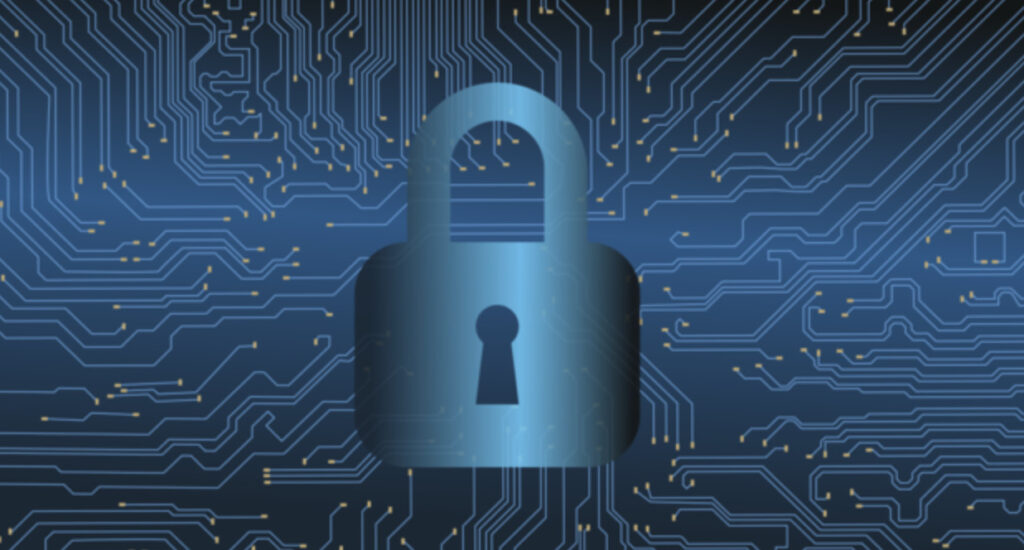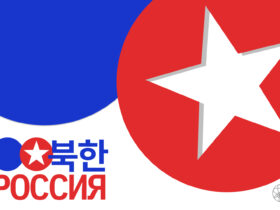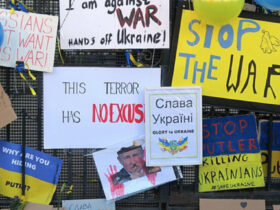LOS ANGELES — With the U.S. midterm elections soon approaching, there are growing fears of the use of information and cyberwarfare to undermine the elections (again). This tactic, a hallmark of Russian President Vladimir Putin’s approach to international affairs, deeply impacted the 2016 presidential election and will continue to worry foreign publics.
Global trends of democratic backsliding remain a chief concern for the world. Though it has been decades since the fall of the Berlin Wall in 1989 and the complete collapse of the Soviet Union in 1991, Russia’s impact on the international community since Putin’s inauguration reveals that authoritarianism continues to thrive in corners of the world — and more importantly, it will continue to undermine global democracy.
Putin’s tight grip on power allows a different version of the Cold War to thrive in the 21st century. The United States never stopped worrying about the Kremlin — nor should it.
Today, Putin aims to dismantle Western progress towards democratization, which he identifies as a threat to autocracy and his geopolitical ambitions. In his quest to reinvigorate Russian power and dominance, the Russian leader blatantly disregards international law and human rights conventions while creating a fundamentally unjust and oppressive domestic Russian society.
Beyond Russia’s own borders, countries in the post-Soviet region, such as Ukraine, are more susceptible to interference in elections from Russian powers. Their vulnerability is a result of their unique history and close geography. As a result, the West must step up to protect growing democratic movements in these countries from being deconstructed.
However, democracy is waning in countries that have been traditionally viewed as beacons of freedom, like the United States, United Kingdom and Germany. These powers’ inability to prevent information and cyber warfare by Russia weakens the West’s ability to protect more vulnerable states against Putin’s agenda. As a result, efforts to protect and promote global human rights are uncertain.
In Russia’s conquest to destabilize Western dominance and influence, it set its eyes on interfering with the 2016 U.S. Presidential Election. The Report On The Investigation Into Russian Interference In The 2016 Presidential Election, commonly known as the Mueller Report, says that “[t]he Russian government interfered in the 2016 presidential election in sweeping and systematic fashion.”
Russia primarily influenced the election by spreading disinformation through social media and leaking hacked information. The Internet Research Agency (IRA), based in St. Petersburg and funded by Russian oligarch Yevgeniy Prigozhin, began creating a program to compromise the U.S. electoral system in 2014 and 2015. The campaign’s infrastructure was then used to further sow and exploit political and social divisions by spreading disinformation throughout the election.
According to the Mueller Report, by early 2016, it was evident that “[the campaign]favored candidate Trump and disparaged candidate Clinton.”
In addition to spreading disinformation in support of Trump, in March 2016, the Main Intelligence Directorate of the General Staff of the Armed Forces of the Russian Federation (GRU) hacked the Clinton Campaign. For example, campaign Chairman John Podesta’s server and various employee emails were hacked. One month later, GRU hacked the Democratic Congressional Campaign Committee and the Democratic National Committee. The Russians released their findings through WikiLeaks, DCLeakes and other internet sites.
The United States found that Russia’s foreign interference in the election infringed on U.S. Criminal Law. Individuals and companies involved in spreading disinformation on social media, and subsequent identity theft, were charged.
In United States of America v. Internet Research Agency the Justice Department stated that “[t]he United States of America… regulates the activities of foreign individuals and entities in and affecting the United States in order to prevent, disclose, and counteract improper foreign influence on U.S. elections…” and, “bars agents of any foreign entity from engaging in political activities within the United States without first registering with the Attorney General.”
As a result, anyone involved in the hacking and release of information was charged, as evidenced by the United States of America v. Netyksho case. Many Russian nationals were expelled from the United States. Even before the release of the Mueller Report, Obama placed sanctions on Russia in response to their meddling in the election.
Russia’s continued meddling violates international law as it prohibits a state from interfering with another state’s domestic affairs. Coercion is not permitted in the form of financial or armed groups. However, the definition of coercion ought to be altered to include electoral interference as it infringes on a state’s sovereignty and can be just as dangerous as traditional methods of “coercion.”
In 2020, Russia — again — attempted to meddle with the U.S. election despite not trying to change the technical, vote-tallying aspects of the election. In the report, Foreign Threats to the 2020 US Federal Elections, the National Intelligence Council stated that Russia was able to hack into some state and local governments before the election took place to undermine the public’s trust in the election results. Russia hoped that this would diminish Biden’s credibility and support Trump’s perspective that the election was compromised, unfair and should not be trusted. Pushing this narrative created social and political chaos, as demonstrated by the January 6 attacks on the U.S. Capitol.
In addition to the anti-democratic rhetoric and actions that Putin helped incite during the election, he also assisted in crafting a contrived narrative about election distrust. This continues to affect the state of civil liberties and human rights in the United States. Republican leaders have used this momentum of skepticism to pass laws that will increase voter suppression. These laws disproportionately affect Black and Latinx Americans from accessing the polls, a group that traditionally votes for more progressive candidates. Today, 1 in 16 Black Americans cannot vote due to disenfranchisement laws. Attacks on voting rights have only worsened in recent months, with eighteen states creating 30 new laws restricting voting in the first half of 2021.
It can be argued that Russia is indirectly in violation of international law as disenfranchisement legislation violates Article 25 of the International Covenant on Civil and Political Rights. Article 25 says that all citizens should have the right to vote without facing discrimination and that there should be no “unreasonable restrictions” on voting. As the disenfranchisement laws are also targeted to affect minorities, these laws breach the International Convention on the Elimination on all Forms of Racial Discrimination. The Convention states that all humans, despite their race or national origin, are born equal. According to both U.S. and international human rights standards, Russia has limited human rights through its election interference, paving the way for a more restrictive and unequal society.
Russia has also conducted information and cyberwarfare in other nation-states in the West. Most notably, in 2017, Russia meddled in the German elections. After the fall of the Berlin Wall, Germany and Russia had a generally undefined and friendly relationship. Following the 2008 financial crisis, there was a wave of populism in Europe. As a result, Germany rose to the occasion and became a leader for democracy and progressive policies. Since Germany involved itself in supporting the democratization of Ukraine, Germany and Russia have had a more contentious relationship. Consequently, during the 2017 election, Russia hacked German government computers and attempted to spread disinformation.
A similar narrative was present in the Brexit referendum and the 2017 Dutch elections. In the UK, Russia spread disinformation through social media and Russia state-sponsored broadcasters such as Sputnik and RT. A press notice from the Intelligence and Security Committee of Parliament stated: “Russian influence in the UK is the new normal,” and “[the]UK is clearly a target for Russian disinformation.”
In the Netherlands, Russia attempted to spread fake news; however, Rob Bertholev, head of the General Intelligence and Security Service, said that the Russian’s objective was unsuccessful. As seen by its consistent efforts, Russia has and will continue to spread disinformation and conduct cyberwarfare during elections in Western states to undermine their society in hopes of expanding authoritarian and xenophobic ideology.
As post-Soviet states begin to Westernize, Russia placed intense focus on these states to eliminate the potential spreading of democratic values. In Ukraine, Russia has worked to interfere with domestic elections as they fear Ukraine is on track to becoming a thriving liberal democracy, which threatens Putin’s vision for the world. Russia has attempted to meddle with two different Ukrainian elections. In 2014, a pro-Russian hacking group, Cuberkerkut, tried to alter election results, and Russia was barely stopped by Ukrainian cyber experts.
For the 2019 Ukrainian elections, Russia changed its approach. As Russia has more control over Ukraine, it can also use physical action to destabilize the country in order to affect elections. In March 2019, the Security Service of Ukraine announced that it had prevented a terrorist attack, which was supposed to take place in Kharkiv, Ukraine. Russia had enlisted locals to place explosives in train stations, with the objective of creating instability before the election on March 31.
Currently, we see even significantly more egregious attacks with Russia as they put pressure on Ukraine in what looks like an invasion. Moreover, Russians also ordered attacks on churches in Southern Ukraine, which included arson and placing Nazi symbols on church walls. A report done by the Secret Service of Ukraine said that “[these attacks]aim to destabilize the social and political situation in our country via the use of artificial religious conflict.”
These actions violate the ICCPR as the terrorist attacks in Kharkiv infringe upon Article 6, which protects a person’s “inherent right to life.” Additionally, while the religious attacks were contrived, Russia’s actions still violate Article 18, which safeguards religious freedom. In response to these attacks, Ukraine has given the Central Election Committee cybersecurity funding. The government also generated a Malware Information Sharing Platform, in compliance with EU and NATO guidelines, to collect intelligence about cyberthreats in real-time. This technology is now used around the world.
The West must act quickly to prevent future information and cyberwarfare.
It’s important to first recognize this type of warfare as an infringement on a state’s sovereignty and a violation of international law. While the EU has crafted systems to identify disinformation, countries must continue expanding these efforts and technologies as the complexity of our media simultaneously develops. To protect against cyberattacks and restore the perception of voting integrity, we must improve upon our aging voting infrastructure. Some electronic voting machines that are still being used in the United States are not even manufactured today, leaving our electoral process susceptible to cyberattacks. Furthermore, every government should have a committee dedicated to producing risk assessments for cyberwarfare.
Most importantly, we need long-term support and funding domestically and abroad. In 2018, the State Department provided $10 million in aid to Ukraine to prevent cybersecurity attacks; meanwhile, Russia spent $350 million to create instability in Ukraine ahead of their elections, according to the Chief of the Ukraine Foreign Intelligence Service, Ychor Bozhok. However, due to the United States’ shifting political positions and radicalized ideology, which has already been exacerbated and exploited by election interference, raising funds will be a challenging feat. The West must make swift changes now to protect democracy and human rights worldwide.
Information and cyberwarfare is traditionally seen as only a matter of national security. However, a national security threat of this kind is inherently a risk to human rights and civil liberties. The United States has already seen how authoritarian ideology has transformed the political and social landscape. Americans cannot be blind to the actions, rhetoric and growing sentiments beyond our borders and expect democracy to prevail around the world on its own.
Power and control are at the center of authoritarian regimes. Thus, the West must take action to safeguard elections and promote cybersecurity around the world in the name of protecting human rights and civil liberties.







